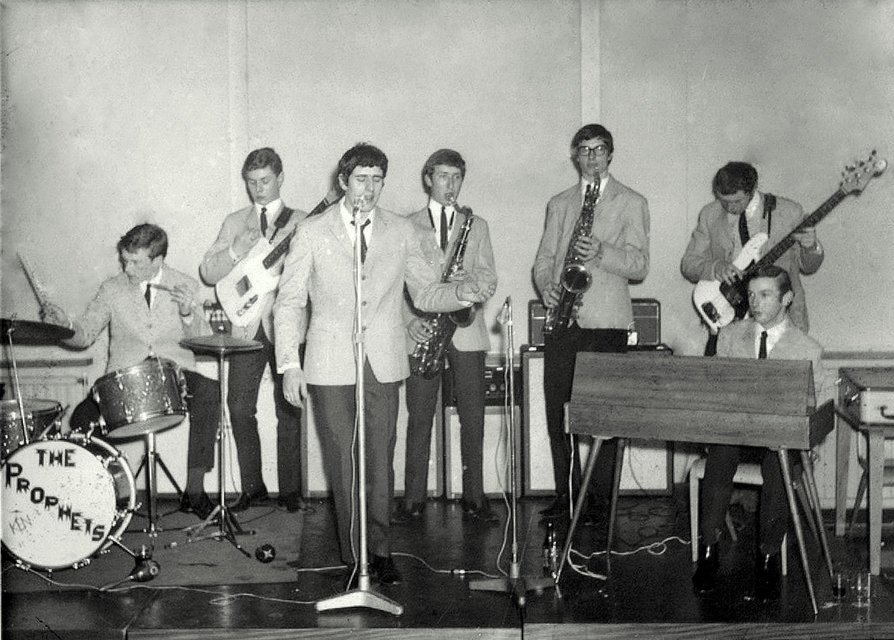By Nick Warburton
The All Night Workers/The All-Nite Workers was a name used by around 30 musicians from West London for a series of interrelated bands that spanned the years 1965-1972.
Mike Dee & The Prophets, early 1964. (Photo from Mick Wheeler)In the second part of an exhaustive history, Nick Warburton looks at how Mike Dee & The Prophets became singer Simon Scott’s new backing band, The All-Nite Workers, before later working as Jimmy Cliff’s New Generation and then Gary Hamilton’s second version of The Hamilton Movement.
Simon Scott & The All-Nite Workers (May-August 1965)
- Simon Scott – lead vocals
- Mick Stewart – lead guitar
- Ron Thomas – bass
- Don Martin – organ
- Mel Wayne – sax
- Dave Mahoney – sax
- Eddie Thorpe – drums
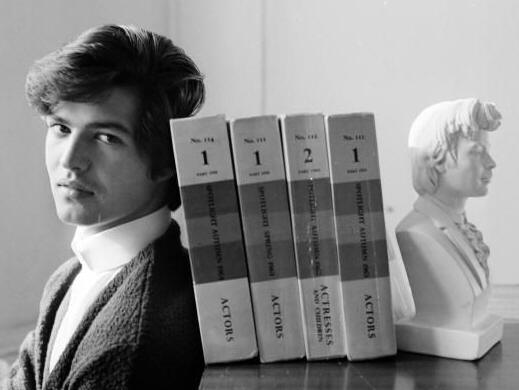
Ron Thomas, Don Martin, Mel Wayne and Dave Mahoney had all recently worked with Mike Dee & The Prophets alongside singer Mick Wheeler (aka Mike Dee), lead guitarist Dave Claridge and drummer Ken Hope (see part 1).
When Mick Stewart replaced Dave Claridge on lead guitar, Mick Wheeler and Ken Hope decided to leave the band and would later return to the music scene in mid-1966 with the first version of The All Night Workers (see part 3).
Mick Stewart was responsible for the link up with Simon Scott, who he’d previously worked with. With music impresario Robert Stigwood representing the band, the remaining Prophets changed name to The All-Nite Workers.
The musicians rehearsed material at the Viaduct public house in Hanwell, just down the road from Jim Marshall’s shop, where they hung out to pick up gigs and purchased equipment. While with Simon Scott the band recorded a lone single for Parlophone – “Tell Him I’m Not Home” c/w “Heart Cry”, which featured Goldie & The Gingerbreads on backing vocals. The single was released on 25 June 1965.
[tubepress video=AbggRupWWwo]
Stigwood, who was acting as manager by this point, also arranged for the band to record an album’s worth of material at Rayrick Studios in Denmark Street in central London. The album, which contained tracks like “Last Night”, “Watermelon Man”, “Night Train”, “Land of a Thousand Dances” and “Mr Pitiful”, has never been released.
The band’s manager also arranged for Simon Scott & The All-Nite Workers to undertake a short UK tour, travelling as far north as the Drill Hall, Dumfries and as far south as the Bude Country Club, Eastleigh where they shared the bill with Zoot Money’s Big Roll Band at the latter.
The All-Nite Workers’ road manager/driver on this tour was Charles “Chunky” Huse, who would join his cousin (and Mick Wheeler’s former band mate from Mike Dee & The Jaywalkers) Brian Mansell in Sunbury, Middlesex-based group, The Missing Links, in February 1966. This band would evolve into a second incarnation of The All Night Workers in October 1967 (see part 4).
In mid-August 1965, the band left Simon Scott to work as The All-Nite Workers because Stigwood was unable to secure enough work for the singer on the live scene.
Notable gigs:
- 22 July 1965 – Locarno Ballroom, Swindon
- 8 August 1965 – Agincourt Ballroom, Camberley
The All-Nite Workers (August-October 1965)
- Mick Stewart – lead guitar/vocals
- Ron Thomas – bass/vocals
- Don Martin – organ
- Mel Wayne – sax
- Dave Mahoney – sax
- Eddie Thorpe – drums
The band continued working under its own name with Stewart and Thomas sharing lead vocals but it was short-lived. At a gig at Hayes Community Centre with Cliff Bennett & The Rebel Rousers, the band introduced new drummer Phil Wainman. Outgoing sticks man Eddie Thorpe would later work with singer Simon Raverne in the late 1960s.
Thomas had met Wainman at Jim Marshall’s shop in Hanwell and the pair immediately struck up a rapport. Wainman had been working in Sweden during 1963-1964 with The Hi-Grades, who also included future ABBA bass player Mike Watson and lead guitarist John Culley, a future member of Geno Washington & The Ram Jam Band and Cressida among others. While in Stockholm, The Hi-Grades worked as a studio band for Sonet Records.
On hearing The Kinks’ “You Really Got Me” on Swedish radio, Wainman returned to the UK and recorded two tracks for a solo single – “Hear Me A Drummer Man” c/w “Hear My Drums”. He then joined The Paramounts, which featured future members of Procol Harum. When former drummer B J Wilson came back, Wainman left and shopped his tracks to various labels.
He got a deal with EMI and the two tracks he’d recorded earlier in the year were put out on a single for Columbia in mid-1965. With the single out, Wainman needed a band to promote it and joined forces with The All-Nite Workers, which briefly became The Phil Wainman Band/Set.
The Hayes gig also proved to be Don Martin’s last night. The organist left and subsequently toured Germany with The Soulmates and another group that might have featured a very young Ian Dury during early 1966. This tour proved to be devastating for him as payment was not forthcoming; the booking agency had gone bust and disappeared. The organist had to sell his equipment to pay off debts and subsequently bowed out of the music scene. In later life, Martin had successful careers in retail management and as a road safety officer in local government.
Martin’s replacement in The All-Nite Workers, Mick Fletcher, joined after an audition and had briefly worked with The Herd.
In November 1965, the new line up recorded two singles with singer Errol Dixon for the Bluebeat label – “You’re No Good” c/w “Midnight Bus” and “Heavy Shuffle” c/w “Gloria” and then briefly became Freddie Mack’s original Mack Sound. However, after a Christmas show the musicians left and started working as The Sound System.
The Phil Wainman Band/Set and The Sound System (November 1965-January 1966)
- Mick Stewart – lead guitar/vocals
- Ron Thomas – bass/vocals
- Mick Fletcher – organ
- Mel Wayne – sax
- Dave Mahoney – sax
- Phil Wainman – drums
Personality differences between Mick Stewart and Phil Wainman led to the former’s departure shortly after the Freddie Mack gig. Stewart would subsequently join Johnny Kidd’s New Pirates in May 1966 (and years later the Sweet) and Tony Sinclair, a guitarist from Hackney took over. Sinclair had been working in France as a member of singer Johnny Halliday’s backing band.
In January 1966, The Sound System began working as a support band for Jamaican artists on Island Records’ roster, including Jackie Edwards, Millie Small and Owen Gray. The Sound System was then asked to back singer Jimmy Cliff.
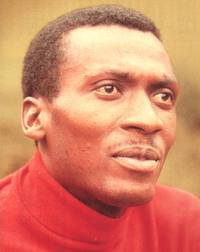
Notable gigs:
- 19 November 1965 – Cellar Club, Kingston, Surrey (billed as Phil Wainman on contract)
Jimmy Cliff & The Sound System/New Generation (February-July 1966)
- Jimmy Cliff – lead vocals
- Tony Sinclair – lead guitar
- Ron Thomas – bass
- Mick Fletcher – organ
- John Droy – trumpet
- Mel Wayne – sax
- Dave Mahoney – sax
- Phil Wainman – drums
(+)
- Pete Hodge – vocals
- Ayshea Brough – vocals
Island Records founder Chris Blackwell had brought Jimmy Cliff over from Jamaica around October/November 1965 to launch his career in England. Cliff first worked with Birmingham band, The Blueshounds (featuring future Fairport Convention bass player Dave Pegg), who were renamed The New Generation. Before hitting the road, promoter George Webb also brought in a young female singer Ayshea Brough, who had been singing on the London club scene.
The link up with The Blueshounds, however, was short-lived, and by mid-late January 1966, Blackwell lined up a second version of The New Generation to back Jimmy Cliff on the road. Having met Wainman at Dolly’s Club in London around November 1965, Blackwell approached the drummer and asked if The Sound System would become the singer’s new backing band, having already worked with other acts on Island’s roster. After accepting, the musicians rehearsed for a few weeks before debuting at the Marquee in London in mid-February 1966.
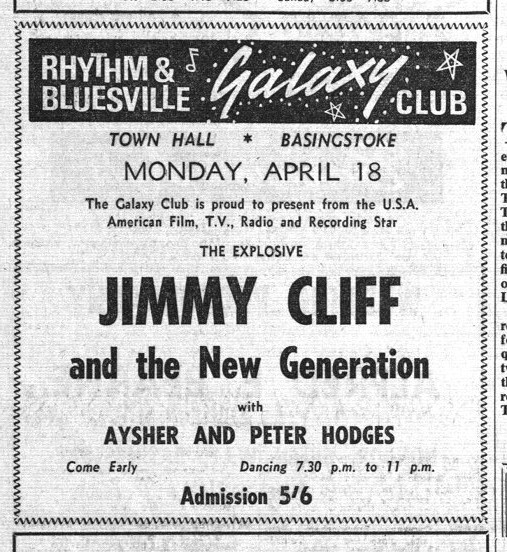
Shortly after the California Ballroom gig in Dunstable on 1 July, Jimmy Cliff and The Sound System/New Generation went their separate ways, with the Jamaican singer subsequently joining forces with The Shakedown Sound in late August/early September 1966.
By mid-July 1966, The Sound System had joined forces with American singer Gary Hamilton who was putting together a new version of The Hamilton Movement.
Notable gigs:
- 10 February 1966 – Marquee with Steampacket (billed as Jimmy Cliff Big Sound)
- 13 February 1966 – Nottingham Boat Club, Nottingham (billed as Jimmy Cliff & The New Generation)
- 19 February 1966 – Klooks Kleek, London (billed as Jimmy Cliff & The New Generation, with Ayshea and Pete Hodge)
- 24 February 1966 – Marquee with Steampacket (billed as Jimmy Cliff Big Sound)
- 4 March 1966 – Adelphi Ballroom, West Bromwich, West Midlands with The Uglys and The Craig (billed as Jimmy Cliff & The New Generation)
- 8 March 1966 – Marquee with Spencer Davis Group (billed as Jimmy Cliff & The New Generation)
- 26 March 1966 – Klooks Kleek, London (billed as Jimmy Cliff & The New Generation and Pete Hodge)
- 14-30 April 1966 – Package tour with The Who, Spencer Davis Group, Paul Dean & The Soul Savages and others
- 18 April 1966 – Galaxy, Basingstoke, Hants (billed as Jimmy Cliff & The New Generation and Ayshea and Pete Hodges)
- 9 May 1966 – Galaxy, Basingstoke, Hants (billed as Jimmy Cliff & The New Generation)
- 10 May 1966 – Marquee with Spencer Davis Group (billed as Jimmy Cliff Sound)
- 8-11 June 1966 – Penthouse, Birmingham (billed as Jimmy Cliff Show, direct from Tiles, London)
- 14 June 1966 – Marquee with Spencer Davis Group (billed as Jimmy Cliff Sound)
- 1 July 1966 – California Ballroom, Dunstable (billed as Jimmy Cliff & The Sound System) with Him & The Others
Hamilton & The Hamilton Movement (July 1966-March 1967)
- Gary Hamilton – lead vocals
- Tony Sinclair – lead guitar
- Ron Thomas – bass
- Mick Fletcher – organ
- Mel Wayne – sax
- Dave Mahoney – sax
- Phil Wainman – drums
(+)
- John Droy – trumpet
- Mike Bailey – trumpet
- Alan Ellis – trumpet
- Patrick Higgs – trumpet
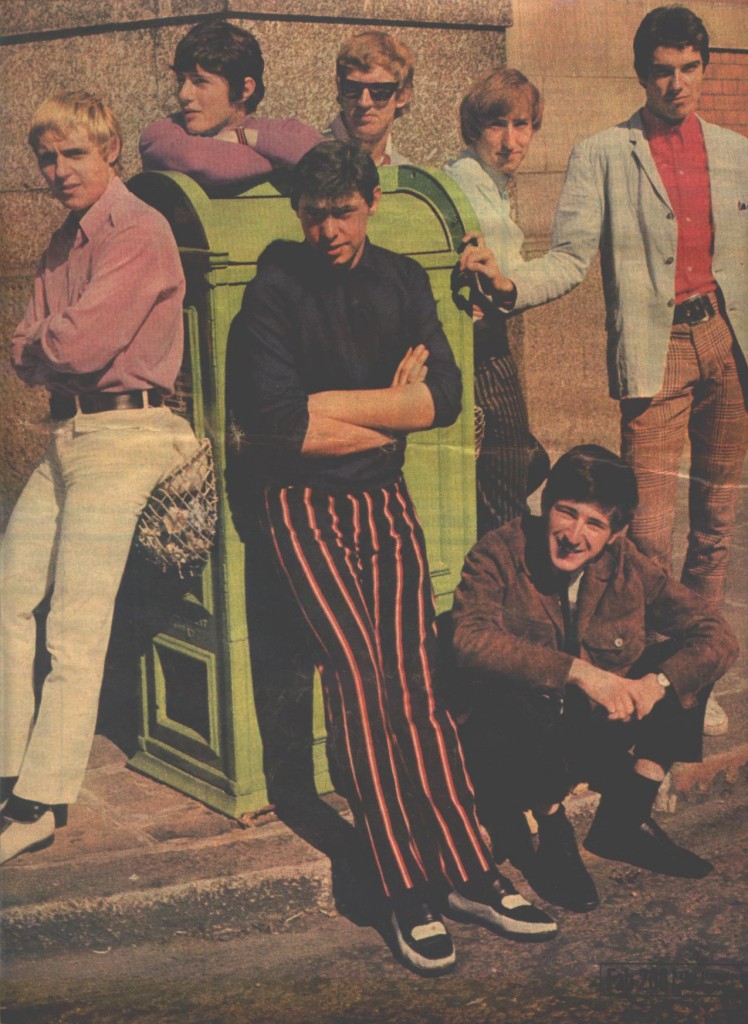
Singer Gary Hamilton had led the original Hamilton & The Movement from mid-1964 to mid-1966, which also included guitarists Peter Vernon-Kell and also (for a short time) Mick Green from Johnny Kidd & The Pirates.
Peter Vernon-Kell had previously been involved with The Detours alongside Pete Townsend, Roger Daltry and John Entwistle and then in The Macabre with guitarist Ed Hamilton. Hamilton & The Movement (as they were originally called) had cut a lone single, a cover of a Marvelettes song, “Really Saying Something”, in October 1965, before Gary Hamilton linked up with Jimmy Cliff’s band in mid-1966.
The new line up embarked on a nationwide tour with The Walkers Brothers, The Creation and The Merseys in August 1966. The following month, John Droy left to join The Quotations, The Walker Brothers’s backing band. The Hamilton Movement was later expanded with the addition of trumpet players Mike Bailey, Alan Ellis and Patrick Higgs (the latter from Elton John’s band, Bluesology).

With financial backing from American actor George Raft, the band signed a recording deal with CBS and cut a lone single – “I’m Not The Marrying Kind” c/w “My Love Belongs To You” at IBC studios. The single was produced by Bill Wyman from The Rolling Stones, who also penned the A-side, and was released on 10 February 1967. When the single didn’t take off, the financial backing was pulled and the horn section dropped.
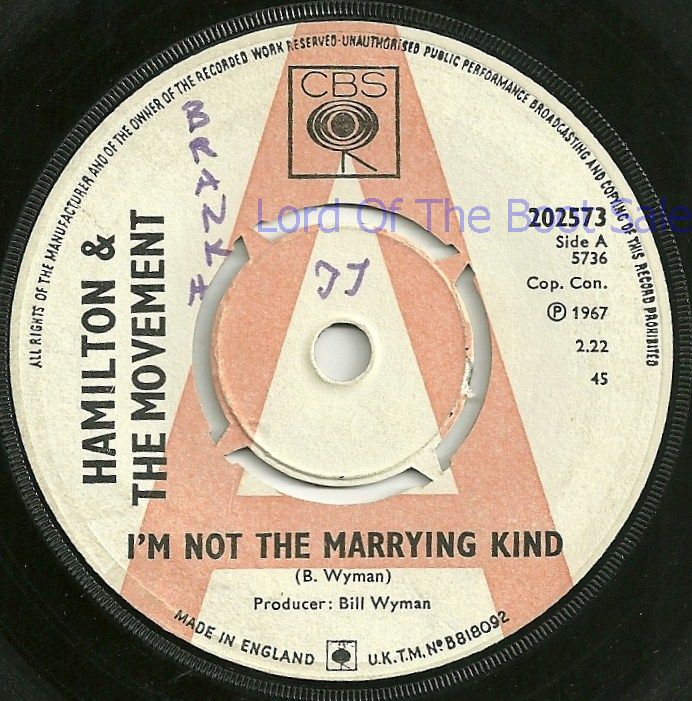
Hamilton and The Movement, “I’m Not The Marrying Kind”, CBS Single, 1967 from http://lordofthebootsale.blogspot.co.uk/
Mel Wayne then briefly joined Carl Douglas & The Big Stampede for about six months and participated in a tour of the south of France. At the time, the line up comprised lead singer Carl Douglas; lead guitarist Del Grace; bass player Tony Charman (aka Webb); trumpet player Verdi Stewart; and drummer Del Coverley. In late 1967, he quit the music business for a few years before joining Calum Bryce in early 1969 where he reunited with Dave Mumford from his early 1960s band, Colin Shane & The Shannons.
Notable gigs:
- 11-13 August 1966 – Gaumont Cinema, Bournemouth, Hampshire with The Kinks, Walker Brothers, The Quotations, Creation, Wishful Thinking, Dave Dee, Dozy, Beaky, Mick & Tich and The Moody Blues
- 14 August 1966 – Tiles, London with The Anzacs
- 3 September 1966 – Rhodes Centre, Bishop’s Stortford with The Mystery Men
- 21 January 1967 – Leeds University, Leeds with The Who
- 19 February 1967 – Saville Theatre, London with Chuck Berry, Del Shannon and The Canadians
Hamilton & The Hamilton Movement (March-April 1967)
- Gary Hamilton – lead vocals
- Tony Sinclair – lead guitar
- Ron Thomas – bass
- Mick Fletcher – organ
- Phil Wainman – drums
Gary Hamilton kept The Hamilton Movement going as a quintet but gradually all of the remaining members were replaced before the band finally split up in early 1968.
In April 1967, Phil Wainman left to join The Quotations, who at the time also included guitarist Billy Bremner. Soon afterwards, this band worked with American singer Jack Hammer and author of “Great Balls of Fire” as his Jammer Hammers, appearing at Blaises and the Whisky A Go Go in May.
In 1968, Phil Wainman recorded a second solo single for Fontana – “Going Going Gone” c/w “Hey Paradiddle” and then turned to record production where he had huge success, most notably with The Sweet and later The Boomtown Rats among others.
[tubepress video=YZUfFEvEdFY]
Ron Thomas, meanwhile, subsequently joined The House of Orange, a backing band for visiting soul acts like The Fantastics, which also included lead guitarist Pip Williams, a former member of Jimmy James & The Vagabonds. Thomas later worked briefly with Leaf Hound before playing with Heaven and The Heavy Metal Kids (with whom he still plays).
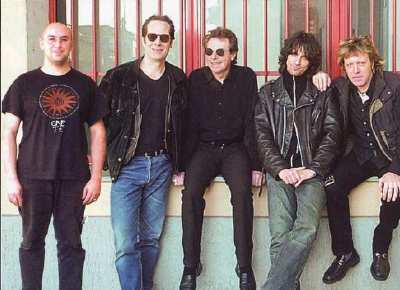
Tony Sinclair may be the same musician that went on to join Lace, who recorded a lone single for Page One Records – “I’m a Gambler” c/w “Go Away” in 1969.
With The All-Nite Workers’ name now a distant memory, the band’s original lead singer (when they were known as The Prophets), Mick Wheeler, decided to form his own version (spelt The All Night Workers) in mid-1966.
To be continued…
Part 2 is available here:
http://thestrangebrew.co.uk/articles/the-all-night-workers-part-3
Copyright © Nick Warburton, 2012. All Rights Reserved. No part of this article may be reproduced or transmitted in any form or by any means, without prior permission from the author.
To contact the author, email: Warchive@aol.com
Many people helped piece this remarkable family tree together. My personal thanks go to: Mick Wheeler, Ron Thomas, Don Martin, Mel Wayne, Simon Scott, Brian Hosking, Phil Wainman, Peter Vernon-Kell, Del Grace, Andy Neill and Steve Ingless.
The following newspapers/magazines were also great sources – Melody Maker, Nottingham Evening Post, Birmingham Evening Mail, Camberley News, Hants & Berkshire Gazette and Fabulous 208. I’d also like to credit the California Ballroom website, which is currently unavailable and this website: www.swindonmusicscene.co.uk
